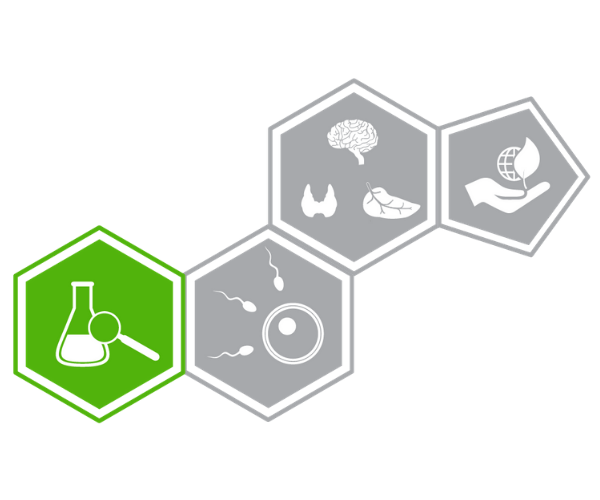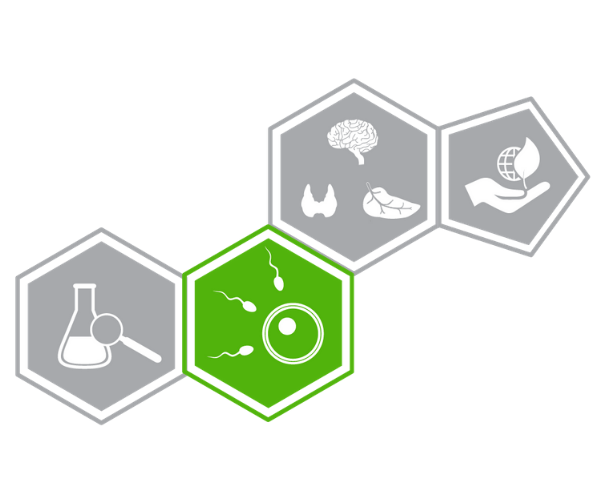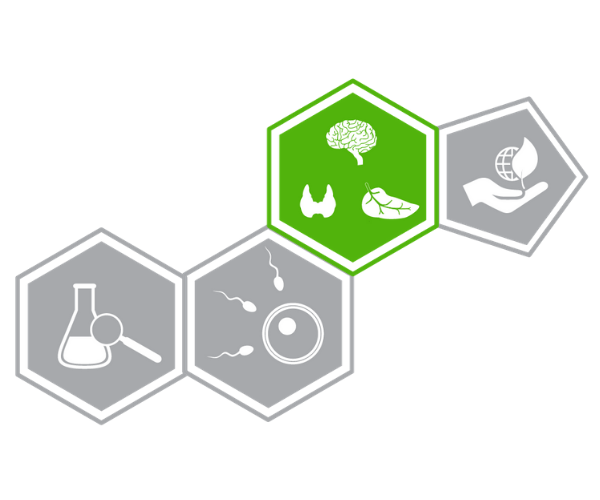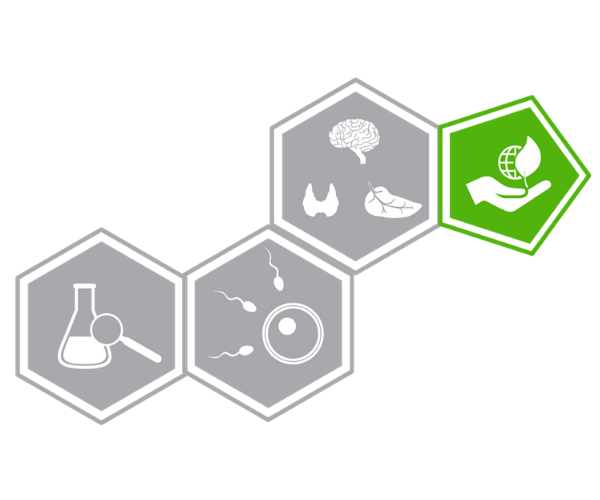The mission of ICEDA is to inform, assist and serve as a resource for academia, government authorities (federal, provincial and municipal), non-profit organizations, the industry as well as the Canadian population, to identify, recognize, quantify and manage endocrine disruptors. ICEDA also promotes intersectoral collaborations and encourages the sharing and exchange of data and methodologies.
Based at INRS, this intersectoral and interdisciplinary research network brings together renowned scientists with complementary interests and skills. Their research covers environmental health, human health, water treatment, analytical chemistry, epidemiology, environmental policies, or any other field relevant to the study of endocrine disruptors.
ICEDA has four themes, each represented by a thematic director.
The objective of this theme is to develop effective protocols for the detection of endocrine disruptors to enhance their monitoring and the ability to model their levels in the environment, as well as to discover improved techniques for treating liquid and solid matrices contaminated by endocrine disruptors.
The main objectives are to determine the regulatory mechanisms underlying the reproductive effects induced by endocrine disruptors.
The main objective is to understand the effects of endocrine disruptors on physiological processes and mechanisms and the impact that perturbations may have on overall health other than reproduction, which is the focus of theme 2.
The objective is to explore existing and upcoming legal consequences and policies internationally that could inspire a possible Canadian policy on endocrine disruptors.



